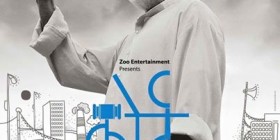Paris of the East of yore — Karachi, commercial capital of Pakistan –, was primarily a Hindu controlled city prior to the 1947 Partition Holocaust. The city roads were not only swept but was washed each morning by the municipality, my parents, now deceased, used to tell me. Arts and culture flourished in the peaceful city. My late mom fondly remembered a great Hindu dancer Vishnu Jagdesh. She was a friend of the family but migrated to Mumbai and married one of the Oberois after the partition tragedy. Vishnu Jagdesh dance performances were highly appreciated by the closely knit local communities that existed at the time in Karachi, including Baloch, Sindhi, Dawoodi Bohras and Ismailis.
Partition of the Indian subcontinent in August 1947, engineered by Lord Mounbatten, the favorite cousin of King George VI, the last viceroy of India changed everything drastically. My late father, a young businessman, had inherited rental apartments from his dad near the Jubilee Cinema. Prior to the 1947 holocaust, his tenants used to be Sindhi Hindu middle class shopkeepers, who had shops nearby in commercial areas of old Karachi like Kharadar. “They were all so nice and polite. Always used to give their rent on time,” my late dad Anwer Mustikhan, who was totally apolitical told me. “After partition, the Hindus left and my new tenants were Muslims from India. They would never give rent on time,” my dad told me.“One day when I went to collect rent they cussed me and threatened me ‘the grass eaters have gone. We are beef eaters like you, we are going to show you.,” my apolitical father said, adding, “That day I realized what a monster Jinnah has created.” Tuberculosis ridden Mumbai barrister M.A. Jinnah, with British help, became the founder of Pakistan, even though he had no connections with the local communities of what is called Pakistan today.
A young Sindhi man at the time was Sree Lal Krishna Advani, now 87, a leader of the Bharatiya Janata Party and former deputy prime minister of India, According to the BJP. “Advaniji was born on November 8, 1927, and grew up in pre-Partition Sindh. As a student in St.Patrick’s School, Karachi, his patriotic ideals inspired him to join the Rashtriya Swayamasevak Sangh (RSS) at the mere age of fourteen. Advaniji’s celebration of India’s independence from the British in 1947 was sadly short lived as he became one of the millions to be torn from his homeland amidst the terror and bloodshed of the tragedy of India’s partition.”Advani visited Karachi birthplace in summer 2005, when he was opposition leader in the Indian parliament. While Advani made his mark in Indian politics, quite a few Sindhi Hindus who went to India at the time of partition are today in the billionaires club of the emerging world power. In Pakistan itself, the Hindu plight was compounded by state policy of abductions, rape, and conversions, however. According to Professor Saswati Sarkar, “When Pakistan was created in 1947, Hindus constituted about 15 per cent of the population of West Pakistan (current Pakistan); by 1998 it is about 1.6 per cent (p. 76, Hindus in South Asia and the Diaspora: A Survey of Human Rights 2013) – the population has declined by about 90 per cent in about 50 years. This decimation is the outcome of sustained legal and social discrimination ever since the creation of Pakistan.”
When Sindhi Hindu businessmen and bureaucrats were in control, Karachi was very diverse. The capital of Sindh not only had a small but vibrant Jewish community, but also a Jewish man named Abraham Reuben was on the city council. There was also a Jewish synagogue, which was vandalized after the first Arab-Israeli war. The Jewish community silently disappeared, even though there is a Jewish graveyard in Karachi.
One woman who played a major role in the creation of Pakistan was Lady Sugrah Hidaytullah, the wife of the first chief minister and first governor of Sindh, after the 1947 holocaust. She was also friends with Fatima Jinnah, sister of Jinnah. Lady Hidayatulah helped in the settlement of the Urdu-speaking refugees from different parts of India. “They were in a very bad shape when they came and we helped them by providing food and shelter.” Late Lady Hidayatullah, in an interview with me many years ago, was full of remorse over the creation of Pakistan. An organization of the Muslims from India called mohajirs, now named the Muttahida Qaumi Movement, had allegedly put her on a death list before she died. Prior to 1947 the population of Karachi was 450,000, with Baloch numbering 270,000. Today the city has a population of more than 15 million, and is one of the dirtiest and deadliest on earth.





Leave a reply